Top aluminium sheet metal in China introduce,list main products and website if have
China is one of the leading producers of aluminium sheet metal in the world. Some of the top aluminium sheet metal manufacturers in China include:
1. Haomei Aluminium
Haomei Aluminium specializes in the production of aluminum sheet metal for various industries such as construction, automotive, and aerospace. Their main products include aluminum sheets, coils, and foils.
Website: https://www.aluminumsheet.net/
2. Henan Mingtai Aluminum
Mingtai Aluminum is a leading aluminium sheet metal manufacturer in China, producing high-quality aluminum sheets and plates for a wide range of applications. They offer custom aluminum products to meet specific customer requirements.
Website: https://www.mt-aluminum.com/
3. Jiangsu Guofa Metal Products Co., Ltd.
Guofa Metal Products is a reliable supplier of aluminium sheet metal in China, offering a comprehensive range of aluminum products including sheets, coils, and strips. They cater to various industries such as packaging, transportation, and construction.
Website: https://www.guofametal.com/
4. Shandong Hengzhan Building Materials Co., Ltd.
Hengzhan Building Materials specializes in the production of coated aluminum coil and sheet metal for building and construction applications. They offer a range of colors and finishes for aesthetic options.
Website: https://www.alumetalchina.com/
These top aluminium sheet metal manufacturers in China are known for their quality products, competitive pricing, and reliable customer service. Customers can visit their websites for more information on their products and services.
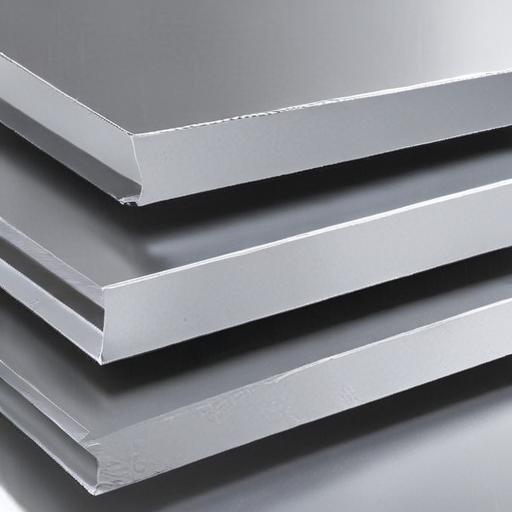
Types of aluminium sheet metal
Aluminium sheet metal is a versatile material used in a wide range of industries for various applications. There are several types of aluminium sheet metal available, each with its own unique characteristics and uses.
1. Basic aluminum sheet: This is the most common type of aluminium sheet metal, known for its excellent corrosion resistance, high strength-to-weight ratio, and good formability. It is used in applications such as roofing, siding, and general fabrication.
2. Anodized aluminum sheet: This type of aluminium sheet metal has been treated with an electrolytic process to increase its resistance to corrosion and wear. It has a durable, long-lasting finish that is available in a variety of colors, making it ideal for decorative applications.
3. Perforated aluminum sheet: Perforated aluminium sheet metal has small holes punched into the surface, allowing for airflow, light, and sound to pass through. It is commonly used in architecture, decorative screens, and filtration systems.
4. Embossed aluminum sheet: This type of aluminium sheet metal has a raised pattern or design on the surface, giving it a decorative appearance. It is often used in architectural applications, signage, and interior design.
5. Brushed aluminum sheet: Brushed aluminium sheet metal has a brushed finish that creates a textured, matte appearance. It is commonly used in automotive trim, appliances, and furniture to add a sleek, modern look.
Overall, aluminium sheet metal is a durable, lightweight material that can be easily shaped and manipulated for a wide range of applications. Each type of aluminium sheet metal offers unique benefits and properties, making it important to select the right type for the specific needs of your project.
Pros and Cons of Using aluminium sheet metal
Aluminium sheet metal is widely used in various industries due to its many benefits. Some of the pros of using aluminium sheet metal include:
1. Lightweight: Aluminium is a lightweight material, making it easier to handle and transport compared to other metals.
2. Corrosion resistance: Aluminium has a natural oxide layer that forms on its surface, protecting it from corrosion and rust.
3. Ductility: Aluminium is highly ductile, meaning it can easily be formed into various shapes without compromising its structural integrity.
4. Heat conduction: Aluminium has excellent thermal conductivity, making it ideal for applications that require heat dissipation, such as in electronics.
5. Recyclability: Aluminium is a highly sustainable material as it can be recycled infinitely without losing its properties, making it an environmentally friendly choice.
However, there are also some cons to using aluminium sheet metal:
1. Lower strength: Aluminium is not as strong as steel, which may limit its use in applications that require high tensile strength.
2. Cost: Aluminium can be more expensive than other metals like steel, which may impact the overall project budget.
3. Surface finish: Aluminium sheet metal can be prone to scratches and dents due to its softer nature, requiring additional protection or treatment.
Overall, the advantages of using aluminium sheet metal often outweigh the disadvantages, making it a popular choice for a wide range of applications in various industries.
aluminium sheet metal Reference Specifications (varies for different product)
Aluminium sheet metal is a versatile material that is commonly used in numerous applications across various industries due to its lightweight, durable, and corrosion-resistant properties. The specifications for aluminium sheet metal can vary depending on the specific product and its intended use.
Some common reference specifications for aluminium sheet metal include:
– ASTM B209: This specification covers aluminium and aluminium-alloy sheet and plate in the annealed, H14, H22, H24, H26, H32, H34, H36, H38, and H112 tempers. It also specifies the chemical composition, mechanical properties, and dimensional tolerances of the material.
– AMS 4027: This specification covers aluminium alloy sheet and plate in the T6 temper for aerospace applications. It provides requirements for chemical composition, mechanical properties, and heat treatment processes.
– EN 485: This European standard specifies the technical delivery conditions for aluminium and aluminium alloy sheet, strip, and plate. It includes requirements for chemical composition, mechanical properties, and tolerances on dimensions and form.
Aluminium sheet metal is available in various grades and tempers to suit different applications, such as transportation, construction, automotive, aerospace, and packaging. It can be easily formed, machined, and welded to create complex shapes and structures.
When selecting aluminium sheet metal for a project, it is important to consider the specific requirements and performance characteristics needed for the application. Working closely with suppliers and manufacturers who are knowledgeable about the different specifications and grades available can help ensure that the right material is chosen for the job.
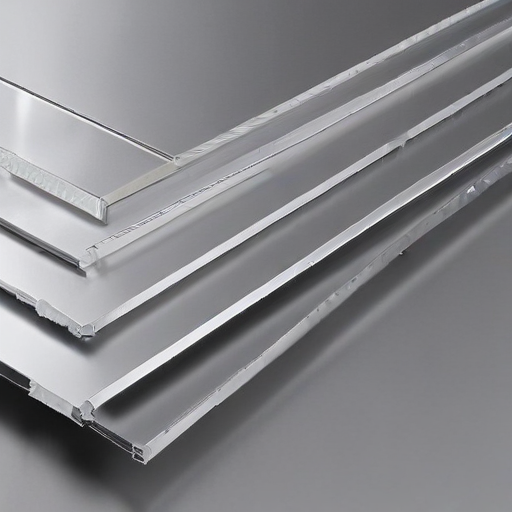
Applications of aluminium sheet metal
Aluminium sheet metal has a wide range of applications due to its lightweight, corrosion-resistant, and durable properties. One common use is in the aerospace industry, where aluminium sheet metal is used to make aircraft components such as fuselages, wings, and interior panels. The lightweight nature of aluminium helps in reducing the overall weight of the aircraft, leading to improved fuel efficiency and performance.
Another major application of aluminium sheet metal is in the construction industry. It is commonly used for roofing, siding, and facades due to its durability and weather resistance. Aluminium sheet metal is also used for interior fittings such as wall panels and ceiling tiles, as well as structural components like beams and columns.
In the automotive industry, aluminium sheet metal is used to make vehicle bodies, hoods, fenders, and other components. The lightweight nature of aluminium helps in improving fuel efficiency and reducing emissions. Additionally, aluminium sheet metal is also used in the manufacturing of heat exchangers, radiators, and other cooling systems due to its high thermal conductivity.
Aluminium sheet metal is also utilized in the packaging industry for making cans, containers, and packaging materials. Its corrosion resistance and ability to be easily formed into different shapes make it an ideal choice for storing and transporting food and beverages.
Overall, aluminium sheet metal finds extensive applications in various industries ranging from aerospace and construction to automotive and packaging, due to its versatility, strength, and durability.
Material of aluminium sheet metal
Aluminium sheet metal is a versatile material that is commonly used in various industries due to its lightweight, durable, and corrosion-resistant properties. The material is made from a combination of aluminium and other elements such as copper, magnesium, and zinc.
One of the main advantages of aluminium sheet metal is its lightweight nature, which makes it ideal for applications where weight is a concern. Despite its lightness, aluminium sheet metal is also incredibly strong and durable, making it suitable for use in environments where the material may be subjected to high levels of stress or wear.
Aluminium sheet metal is also highly resistant to corrosion, which is a common issue with other metals such as steel. This makes it an ideal choice for outdoor applications or environments where the material may be exposed to moisture or corrosive substances.
In addition to its physical properties, aluminium sheet metal is also easy to work with. It can be easily cut, bent, and formed into various shapes using standard metalworking tools. This makes it a popular choice for manufacturers and fabricators who require a material that can be easily manipulated to meet their specific requirements.
Overall, aluminium sheet metal is a versatile material that offers a combination of strength, durability, and corrosion resistance. Its lightweight nature and ease of workability make it a popular choice for a wide range of applications across various industries.
Quality Testing Methods for aluminium sheet metal and how to control the quality
There are several quality testing methods for aluminium sheet metal to ensure that it meets the required standards. Some of the most common methods include visual inspection, mechanical testing, chemical composition analysis, and surface finish evaluation.
Visual inspection involves checking for any defects such as cracks, scratches, dents, or surface irregularities. Mechanical testing includes tests like tensile strength, hardness, and impact resistance to determine the structural integrity of the sheet metal.
Chemical composition analysis is essential to ensure that the aluminium sheet metal meets the specified alloy composition. This can be done using techniques like spectroscopy or X-ray fluorescence analysis.
Surface finish evaluation involves examining the surface texture, roughness, and overall appearance of the sheet metal. This can be done visually or using tools like profilometers.
To control the quality of aluminium sheet metal, it is important to establish clear quality control processes and procedures. This includes setting standards for each testing method, conducting regular inspections, and implementing corrective actions when defects are detected.
Additionally, it is important to work closely with suppliers and manufacturers to ensure that they are meeting the required quality standards. Regular communication and feedback can help to address any issues and improve the overall quality of the product.
By implementing these quality testing methods and controlling the quality of aluminium sheet metal, you can ensure that it meets the necessary specifications and standards for your applications.
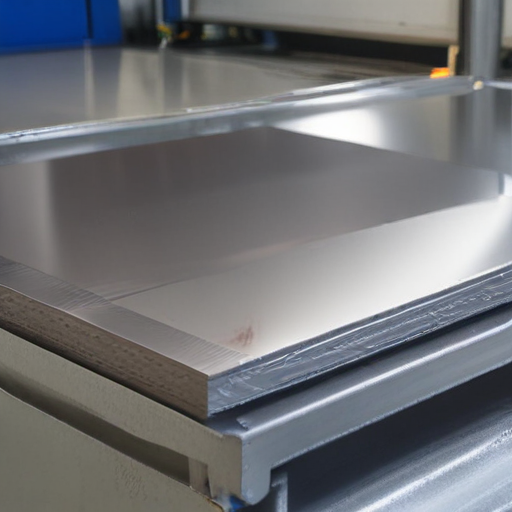
The Work Process and how to use aluminium sheet metal
Aluminium sheet metal is a versatile and commonly used material in various industries such as construction, automotive, and aerospace due to its lightweight, strength, and corrosion resistance. The work process of using aluminium sheet metal typically involves several steps:
1. Design: Before starting the fabrication process, it is essential to have a clear design in mind for the desired product or component. This includes specifying the dimensions, thickness, and shape of the aluminium sheet metal.
2. Cutting: Aluminium sheet metal can be cut using different methods such as shearing, laser cutting, or water jet cutting. The choice of cutting method will depend on the complexity of the design and the required precision.
3. Forming: Once the sheet metal is cut to size, it can be formed into the desired shape using techniques such as bending, rolling, or stamping. This step is crucial for creating the final product with the required dimensions and features.
4. Joining: Aluminium sheet metal can be joined together using methods such as welding, riveting, or adhesive bonding. The choice of joining method will depend on the strength and aesthetics requirements of the final product.
5. Finishing: Finally, the aluminium sheet metal can be finished with surface treatments such as painting, anodizing, or powder coating to enhance its appearance and protect it from corrosion.
Overall, the work process of using aluminium sheet metal involves careful planning, precise cutting and forming, proper joining techniques, and finishing touches to create high-quality products or components. By following these steps, aluminium sheet metal can be effectively utilized in various applications while ensuring durability and functionality.
aluminium sheet metal Importing questions including Cost,Supplier,Sample,Certification and Market
Importing aluminium sheet metal requires thorough research and consideration of various factors.
Cost is a crucial aspect to consider when importing aluminium sheet metal. The cost may vary based on the supplier, quality, quantity, and specifications of the metal. It is essential to compare prices from different suppliers to ensure competitive pricing.
Choosing a reputable supplier is key to importing high-quality aluminium sheet metal. Conducting background checks, reading reviews, and requesting references can help verify the credibility of potential suppliers.
Ordering a sample from the supplier is advisable to assess the quality and suitability of the aluminium sheet metal. This allows you to inspect the material, check for defects, and ensure it meets your requirements before placing a bulk order.
Ensuring the aluminium sheet metal meets necessary certifications and standards is crucial for compliance and quality assurance. Look for suppliers that provide certifications such as ISO, ASTM, or specific industry standards to guarantee the metal’s quality and suitability for your needs.
Researching the market for aluminium sheet metal is essential to understand demand, trends, competitors, and potential opportunities. Analyzing market factors can help you make informed decisions on pricing, marketing strategies, and potential risks associated with importing aluminium sheet metal.
In conclusion, importing aluminium sheet metal involves considering cost, selecting a reliable supplier, requesting samples, verifying certifications, and researching the market. Taking these steps can help ensure a successful import process and procurement of high-quality aluminium sheet metal for your business needs.
How to find and select check reliable aluminium sheet metal manufacturers in China
When looking for reliable aluminium sheet metal manufacturers in China, there are a few key steps to follow:
1. Research: Start by researching the top aluminium sheet metal manufacturers in China. Look for companies with a good reputation, years of experience, and positive customer reviews.
2. Check certifications: Make sure the manufacturer has the necessary certifications and quality standards in place, such as ISO 9001 certification.
3. Visit the factory: If possible, visit the manufacturer’s factory in person to see their facilities and production processes firsthand.
4. Request samples: Ask the manufacturer for samples of their aluminium sheet metal products to check the quality and gauge their capabilities.
5. Get quotes: Obtain quotes from multiple manufacturers to compare prices and services. Be wary of significantly lower prices, as they may indicate inferior quality.
6. Look for communication: Choose a manufacturer that is easy to communicate with and provides prompt responses to your inquiries.
7. Check references: Ask for references from past customers to get an idea of the manufacturer’s reliability and customer satisfaction.
By following these steps, you can find and select a reliable aluminium sheet metal manufacturer in China that meets your quality and budget requirements.
Background Research for aluminium sheet metal manufacturers Companies in China, use qcc.com archive.org importyeti.com
When researching aluminium sheet metal manufacturers in China, QCC.com is a valuable resource. QCC.com provides comprehensive information on businesses, including their background, products, and certifications. By using the search tool on QCC.com, you can easily find a list of aluminium sheet metal manufacturers in China and gather relevant information about their operations.
Archive.org is another useful platform for background research on aluminium sheet metal manufacturers in China. Archive.org allows you to access historical data and information about a company’s website, providing insights into their growth, changes in products, and overall development over time. By analyzing the archived information on Archive.org, you can gain a better understanding of the manufacturer’s history and track record.
Importyeti.com is a valuable tool for researching aluminium sheet metal manufacturers in China in terms of their international trade activities. Importyeti.com provides data on import and export shipments, giving you an overview of the manufacturer’s global reach and market presence. By reviewing the import and export data on Importyeti.com, you can assess the manufacturer’s competitiveness in the international market and their potential as a reliable supplier of aluminium sheet metal products.
Overall, by leveraging the information available on QCC.com, Archive.org, and Importyeti.com, you can conduct a thorough background research on aluminium sheet metal manufacturers in China and make informed decisions when selecting a supplier for your business needs.
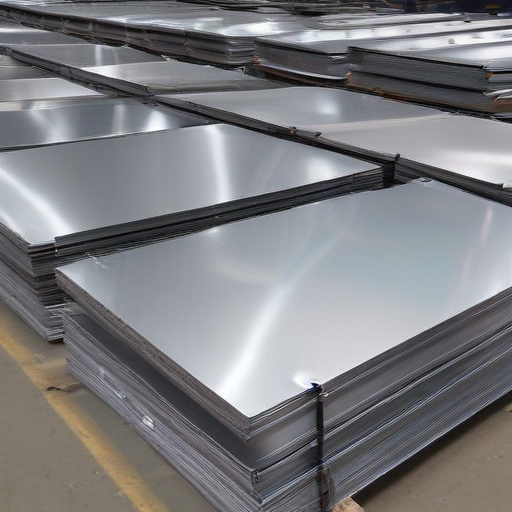
Price Cost Research for aluminium sheet metal manufacturers Companies in China, use temu.com and 1688.com
When researching the price and cost of aluminium sheet metal manufacturers in China, two popular websites to consider are temu.com and 1688.com.
On temu.com, you can find a variety of aluminium sheet metal manufacturers offering different products and services. The platform allows you to easily compare prices, quality, and customer reviews to make an informed decision. You can also contact the manufacturers directly through the website to inquire about their pricing and cost.
Similarly, 1688.com is another valuable resource for sourcing aluminium sheet metal manufacturers in China. The website features a wide range of suppliers and products, allowing you to explore different options and find the best deals. You can also use the platform to communicate with manufacturers, negotiate prices, and arrange for orders.
When conducting your research on these websites, it is important to consider factors such as the quality of the products, delivery times, minimum order quantities, and payment terms. By comparing prices and costs from multiple manufacturers, you can find a supplier that meets your specific requirements and budget.
Overall, temu.com and 1688.com are excellent resources for researching and sourcing aluminium sheet metal manufacturers in China. By leveraging these platforms, you can find competitive prices, high-quality products, and reliable suppliers to meet your needs.
Shipping Cost for aluminium sheet metal import from China
When importing aluminium sheet metal from China, one of the most important costs to consider is the shipping cost. The shipping cost can vary depending on several factors, including the weight and dimensions of the aluminium sheets, the shipping method chosen, and the distance between the origin and destination.
One of the most common ways to ship aluminium sheet metal from China is by sea freight. This method is usually the most cost-effective for large volumes of aluminium sheets. The cost of sea freight is typically calculated based on the volume or weight of the shipment, known as freight tonnage. It is important to note that shipping costs may fluctuate based on market conditions, fuel prices, and other factors.
Another shipping method to consider is air freight, which is faster but more expensive than sea freight. Air freight is suitable for urgent shipments or smaller volumes of aluminium sheets. The cost of air freight is determined based on the weight of the shipment and the distance it needs to travel.
It is also essential to consider additional costs, such as customs duties, import taxes, and handling fees when calculating the total shipping cost. Working with a reliable freight forwarder or shipping company can help navigate the complex process of importing aluminium sheet metal from China and provide accurate cost estimates.
In conclusion, when importing aluminium sheet metal from China, it is crucial to carefully consider the shipping cost and choose the most suitable shipping method based on the volume, urgency, and budget constraints. Conducting thorough research and planning ahead can help ensure a smooth and cost-effective import process.
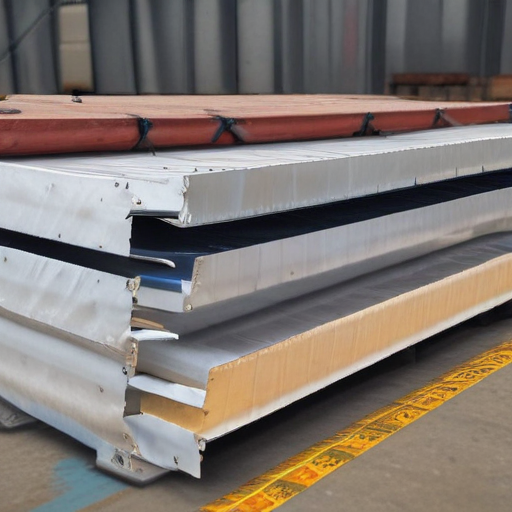
Compare China and Other aluminium sheet metal Markets: Products Quality and Price,Visible and Hidden Costs
China is currently the largest producer and exporter of aluminium sheet metal in the world, known for its competitive prices and wide range of product offerings. However, the quality of Chinese aluminium sheet metal products can vary significantly, with some manufacturers producing substandard materials that may not meet international standards.
On the other hand, other markets such as Europe and North America are known for their higher quality aluminium sheet metal products, with stricter quality control measures in place to ensure consistency and reliability. While the prices of aluminium sheet metal in these markets may be higher compared to China, customers can be assured of the quality and performance of the products they purchase.
In terms of visible and hidden costs, customers need to consider factors such as shipping and import duties when purchasing aluminium sheet metal from China, which can add to the overall cost of the product. On the other hand, working with suppliers in closer proximity in markets like Europe or North America may reduce shipping costs and lead times, making it more cost-effective in the long run.
Overall, when comparing China and other aluminium sheet metal markets, customers should weigh the trade-offs between price and quality. While China may offer more competitive prices, there may be risks associated with product quality. Other markets may offer higher quality products at a higher price, but customers can have more confidence in the reliability and performance of the materials they purchase. Ultimately, customers should consider their specific requirements and budget constraints when making a decision on where to source aluminium sheet metal products.
Custom Private Labeling and Branding Opportunities with Chinese aluminium sheet metal Manufacturers
Looking to create a unique brand identity for your aluminium sheet metal products? Chinese manufacturers offer custom private labeling and branding opportunities to help you stand out in the market.
With state-of-the-art facilities and years of experience, Chinese aluminium sheet metal manufacturers can provide you with a range of branding options, including custom packaging, logo printing, and product engraving. You can work closely with their team to design a label that reflects your brand’s values and aesthetic.
By partnering with a Chinese manufacturer for private labeling, you can ensure that your products are exclusive to your brand and resonate with your target audience. This can help you build brand loyalty and differentiate yourself from competitors.
In addition to private labeling, Chinese manufacturers can also assist you with customizing your products to meet your specifications and requirements. Whether you need a specific size, shape, or finish, they can work with you to create a product that meets your needs.
Overall, partnering with a Chinese manufacturer for private labeling and branding opportunities can help you create a unique identity for your aluminium sheet metal products and establish a strong presence in the market. Contact us today to learn more about how we can help you customize your products and build your brand.
Tips for Procurement and Considerations when Purchasing aluminium sheet metal
When purchasing aluminium sheet metal, there are several important considerations to keep in mind to ensure that you are getting a quality product at a fair price. Here are some tips for procurement:
1. Determine the specifications: Before making a purchase, clearly define the specifications of the aluminium sheet metal that you need. This includes the size, thickness, alloy type, and any other specific requirements for your project.
2. Research suppliers: Take the time to research different suppliers and compare their pricing, quality, and delivery lead times. Look for suppliers that have a good reputation for providing high-quality aluminium sheet metal.
3. Consider the alloy type: There are different alloy types of aluminium sheet metal available, each with its own unique properties. Consider the specific requirements of your project to determine the most suitable alloy type for your needs.
4. Quality assurance: Make sure that the supplier provides a quality assurance guarantee for their products. This can help to ensure that you are getting a consistent and reliable product.
5. Price negotiation: Don’t be afraid to negotiate on price with suppliers, especially if you are purchasing in bulk. Many suppliers are willing to offer discounts for larger orders.
6. Delivery and lead times: Consider the delivery and lead times for the aluminium sheet metal, especially if you have a tight project deadline. Make sure that the supplier can deliver the product within your required timeframe.
7. Customer service: Choose a supplier that provides excellent customer service and support. This can be important if you encounter any issues with your purchase or have any questions about the product.
By following these tips and considerations, you can help ensure that you find the right aluminium sheet metal for your project at a competitive price.
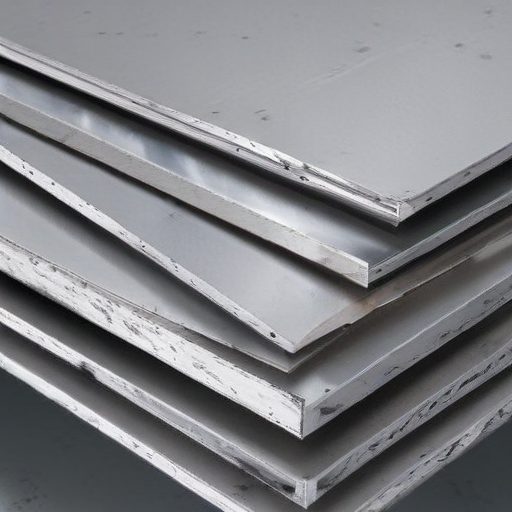
FAQs on Sourcing and Manufacturing aluminium sheet metal in China
1. What are the benefits of sourcing aluminium sheet metal from China?
Sourcing aluminium sheet metal from China can often be more cost-effective due to lower labor and production costs. Additionally, China has a well-established supply chain for aluminium materials, providing a wide range of options for customization and production capabilities.
2. How can I ensure the quality of aluminium sheet metal manufactured in China?
It is important to thoroughly research and vet potential suppliers in China, looking for certifications and references to ensure their quality standards. Visiting manufacturing facilities and conducting quality control checks during production can also help ensure the quality of the final product.
3. What are the common manufacturing processes used for aluminium sheet metal in China?
Manufacturing processes for aluminium sheet metal in China typically include cutting, bending, stamping, welding, and anodizing. CNC machining and laser cutting are also commonly used for precision and complex designs.
4. Are there any trade restrictions or tariffs on importing aluminium sheet metal from China?
It is important to stay informed on current trade policies and regulations to avoid any unexpected tariffs or restrictions on importing aluminium sheet metal from China. Working with a reputable customs broker can help navigate any potential issues.
5. How can I ensure ethical and sustainable sourcing practices when manufacturing aluminium sheet metal in China?
It is essential to communicate with suppliers in China about their environmental and labor practices, ensuring they comply with international standards for ethical and sustainable manufacturing. Conducting regular audits and inspections can also help ensure responsible sourcing practices.
Why contact sourcifychina.com get free quota from reliable aluminium sheet metal suppliers?
Sourcifychina.com offers a convenient and efficient way to connect with reliable aluminium sheet metal suppliers in China. By contacting Sourcifychina.com, you can easily obtain a free quota from these suppliers without the hassle of searching for and vetting potential partners on your own.
By working with Sourcifychina.com, you can access a wide network of trusted suppliers who have been pre-screened for quality and reliability. This can save you time and effort in finding the right supplier for your aluminium sheet metal needs.
Additionally, by obtaining a free quota from these suppliers through Sourcifychina.com, you can compare pricing and terms to ensure you are getting the best deal possible. This can help you save money and make informed decisions when sourcing aluminium sheet metal from China.
Overall, contacting Sourcifychina.com for a free quota from reliable aluminium sheet metal suppliers is a smart and convenient way to streamline your sourcing process and ensure you are working with trusted partners.
